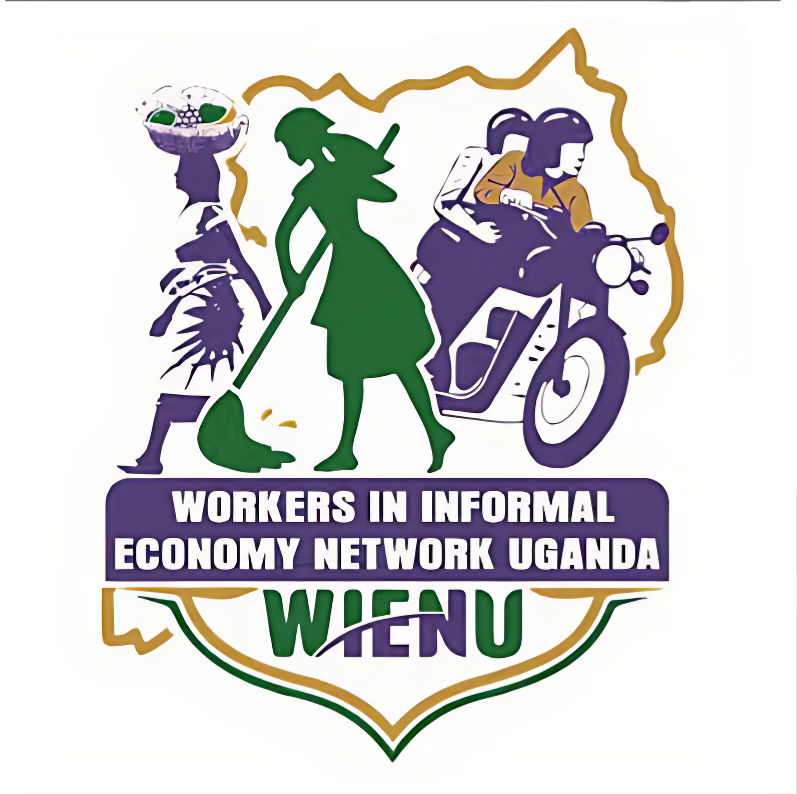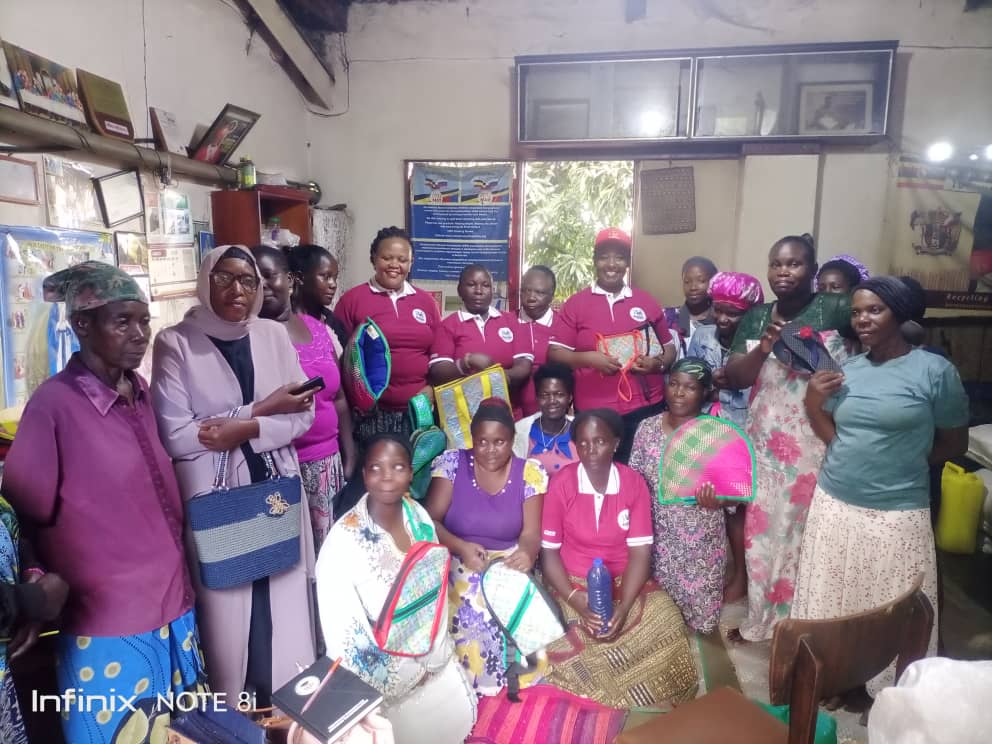
Home based workers
Business chain you never imagined it exists with WIENU, we introduce to you our Members of Kinawataka women initiative.......
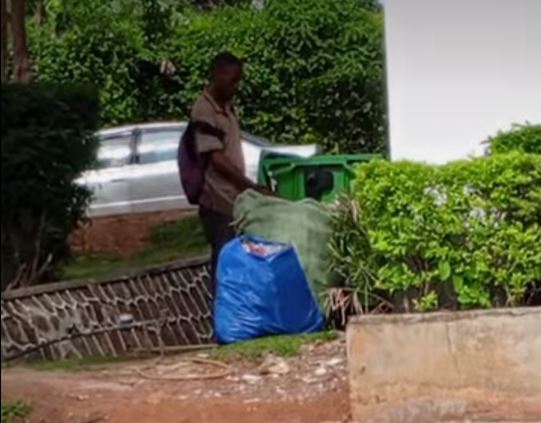
Waste pickers
He is not a mad man! He is a young energetic waste picker who is a hand to mouth worker, earning a little money to survive......

Street vendors
Street and Market vendors have been recorgnised as the most GDP contributing sectors to the economy of Uganda, WIENU therefore acts to advocate for gazzetted working spaces, zero or no violence against their activities, safe children/baby care homes for young mothers trading on streets.

Motorcyclists
Motorcyclists are also part of the Informal workers and they contribute much in the Uganda's Economy. WIENU also recorgnises their activities and advocate for their rights and clear work spaces, the policies should favor them to operate from wherever in the country.

Hawkers.
WIENU also recorgnises the Hawkers as part of the informal Economy workers, we advocate for their decent gazzetted work spaces and their rights as workers for they contribute to the country's GDP

Fisheries
WIENU - Fishing activities in refugee host communities and other areas have not been recognized as an economic activity in the country. As WIENU we recorgnise their activities and advocate for their rights, we there request for stakeholders and the government to negotiate about their rights and clear good policies that allow them do their work as it's where they earn a living and cater for their families.

WOMEN FISHERIES
One of the key responsibilities of WIENU is Organising the women fishers and vendors in the informal economy world, an activity that involved women thus lifting up their capacity to the economy.

Performing Artists.
WIENU MOU signing with YASKA movies where our youth chairman brother Kasawuri Yasin comes from. Bravo
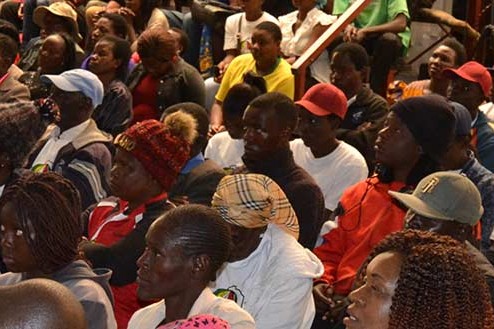
WIENU Launches Ground breaking Social Protection Policy for Informal Economy Workers in Uganda
Workers in Informal Economy Network Uganda (WIENU) proudly introduced the Workers in Informal Economy Social Protection Policy, also known as WIESOPS, on the 20th of June 2024 in Kampala, Uganda.
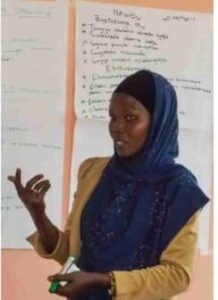
Workers in Informal Employment in Uganda: A Statistical Profile, 2018-2021 - WIEGO
The number of people employed in Uganda rose between 2018 and 2021 (from 10.2 to 10.3 million), but the rate of employment fell from 50% to 44% of the working-age population, nationally.
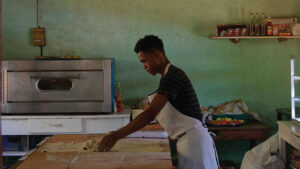
Social Protection for the Informal Economy: Operational Lessons for Developing Countries in Africa and Beyond
The size of the informal economy as a share of GDP in Africa is the largest in the world and with most jobs expected to be created in the informal economy, they will continue to be the lifeblood of economies.
Feasibility study on extension of Social Security coverage to the informal economy in Uganda by the National Social Security Fund
Uganda started on the road to establishing a social protection system with the approval of the national social protection policy (NSPP) in 2015, accompanied by the development of the Program Plan of Implementation (PPI) to guide the implementation of the NSPP.
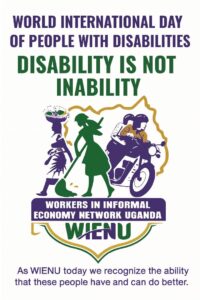
WIENU STATEMENT ON THE INTERNATIONAL DAY OF PERSONS WITH DISABILITIES .
Today, WIENU joins the world in commemorating the International Day of Persons with Disabilities, a day dedicated to promoting the rights, dignity, and full inclusion of persons with disabilities in all aspects of society.
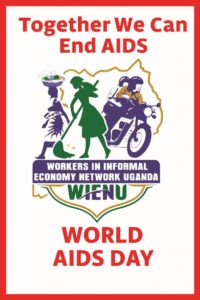
WIENU STATEMENT ON WORLD AIDS DAY
Today, as the world commemorates World AIDS Day, WIENU stands in solidarity with all individuals, families, and communities affected by HIV/AIDS. This day reminds us of our shared responsibility to promote dignity, inclusion, and access to health services for everyone without stigma or discrimination.
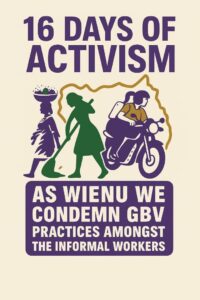
Workers in Informal Economy Network Uganda (WIENU) Commemoration of the 16 Days of Activism Against Gender-Based Violence 03 December 2025
Workers in Informal Economy Network Uganda (WIENU) joins the rest of the world in commemorating the 16 Days of Activism Against Gender-Based Violence, a global campaign that runs from 25th November to 10th December each year. This year’s observance reinforces the urgent call to end all forms of violence, discrimination, and exploitation faced by women, men, and youth working within Uganda’s informal economy.
